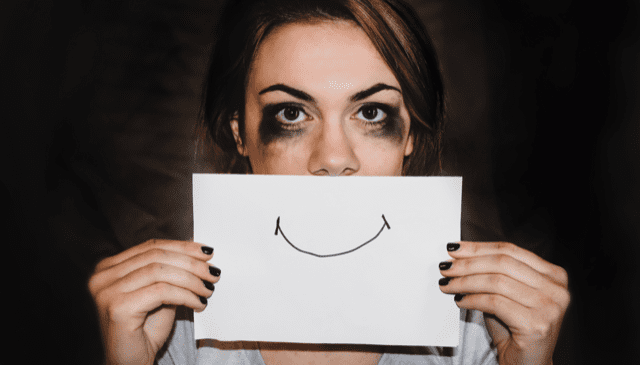
Depression. We are surrounded by it. According to AFSP.org, for 2017 alone, there were an estimated 1,400,000 suicide attempts. In 2017, there were 47,173 REPORTED suicides, with no estimate on the ones that were unreported. In 2015, suicide and self-injury cost the US $69 Billion. Celebrities get the spotlight in the news regarding suicide, and we all lament the loss of amazing people. But we don’t talk about the veterans, children, addicts, regular people that we lose to suicide. Addicts. Why exactly is there an opioid crisis right now in our country? Because people want to FEEL BETTER. No one likes to talk about it, except in the case of a mass shooting. We love to throw the words “mental illness” around a lot when trying to understand the reason a human being would open fire on a group of people. In 2019, according to Gun Violence Archive, there have been 283 mass shootings in the US. You read it right. 283 MASS SHOOTERS resulting in 283 mass shooting incidents. We are on target to track more mass shooting incidents this year than the number of days in the year. Why is there still such a stigma surrounding depression?
My own experience with depression began when I was a teen. I knew I needed to get out of the small town where I lived, and I knew I felt like an outsider there. I took my first drink at age 17, and I immediately felt “normal”, or what I thought normal must feel like. I didn’t feel sad. Undiagnosed depression was solved for me. Until it wasn’t. Until there just wasn’t enough alcohol to fill that hole inside of me. Alcohol saved my life until it quit working. Enter recovery. Twelve step programs helped me to change my behavior relating to consuming alcohol to change the way I feel. AA will forever be one of the greatest lifelong gifts I’ve been given. I learned techniques and tools that helped me to cope with life on life’s terms, and how to turn down the noise in the bad neighborhood between my ears when it got too loud. Twelve step meetings are where I heard the term “depression” as an actual diagnosis first. It didn’t apply to me though. No one in my family talked about depression even though all the signs and symptoms were there. One was considered “weak” if one felt the need to see a “crazy doctor”. So, I couldn’t be depressed. I was just a garden variety alcoholic. There was a stigma associated with being in recovery as well, but it was at least a notch up from being “crazy”. No one seemed to be ashamed of me when I was dancing naked on the table or wrecking my car while drunk, but they apparently were when I was trying to get well from being a drunk. Go figure. Enter the awareness that my own family might not be the benchmark on what’s actually normal. I practiced more self-knowledge, self-examination, and boundaries. If you ever want to piss off a bunch of relatives, create and enforce a healthy boundary for yourself among them. You will learn quickly how horrible a person you are for daring to question the dysfunction in which you were raised.
Marriage, new family, pregnancy all ensued – stone cold sober. Active recovery helped me fill the hole inside for a good long time. Pregnancy hormones told the bad neighborhood we were throwing a party. I began having thoughts of violence, not against myself, mind you. I wouldn’t have wanted to be an associate of mine during that time though. I was having thoughts that I KNEW were crazy, and I couldn’t control it. A friend suggested I talk to a counselor, who referred me to a psychiatrist, who diagnosed me with pregnancy induced depression. I was prescribed 10 mg daily of Zoloft. I fought with myself about taking medication during pregnancy and came to the conclusion that it was better for me to have non-homicidal thoughts while growing a baby than it was for me to allow those thoughts to fester. Who among us wants to infuse a baby with serial killer tendencies in the womb, right? I tried, after the baby was born, to go off the meds and it didn’t take long to see exactly why I needed them. My anxiety levels were insane. Again, I had to choose between being a complete shrew during my baby’s childhood or taking a pill to chill. The choice was easy.
Enter big life changes like divorce, bankruptcy, moves. How sneaky is this disease? The gang from the bad neighborhood convinced me that my depression was situational, and not chemical. It wasn’t rational, but what did I really know about it? I weaned myself off meds again at a time when I probably needed them the most. That decision was followed by the deepest, darkest depression I’ve ever known. I couldn’t sleep. I cried all the time. I was stuck in quicksand, and I didn’t know how to get out. I suffered for a couple of years before my best friend suggested that it’s okay to wear a raincoat when it’s raining. I had recently begun seeing a therapist again, who kindly suggested maybe it was time to go back on meds. The long journey to chemical balance in my brain began.
Ironically enough, even though I witnessed depressive behavior in my mother, and experienced my own depression, I never considered preparing my daughter to recognize the signs. I completely prepared her to recognize signs of addiction. She knows she has the genetic markers for it on both sides of her family, and she knows the signs. Yet, I never thought to tell her what depression feels like, and what resources are available to her. When she was 16, and was crying every day, even I couldn’t recognize it at first. I couldn’t decipher what was normal teenage hormones versus a bonafide depression. When she couldn’t tell me what was making her feel sad, it went off like a light bulb. We sought professional help. She has had a couple of good years with treatment for her depression. Recently, I noticed some subtle changes in her behavior, isolating, not responding to texts from people who love her. Again, I missed the signs. My frustration at her behavior changes didn’t help us get there any faster. A few weeks ago, we got into a conflict about her not responding to a text, and she said, “You ought to know better than anyone what being depressed feels like.” Boom. I saw it. I heard it. And, now, she begins the journey for chemical balance in her brain. Right now, that looks like talk therapy and continuing the medications she’s been taking since her diagnosis. I don’t know what the journey will look like tomorrow, but I’m grateful we’re taking it together.
The thoughts I have around depression as a disease as it applies to me right now are:
- Although I didn’t prepare her to know what the signs of depression are, she knew how to ask for help. For this, I’m grateful.
- We still have extended family that doesn’t understand. They are uncomfortable talking about it, and that’s okay. I will continue to talk about hard things around them. I have lost cousins to suicide, and an uncle to alcoholism. I have lost way too many friends in recovery to suicide. This disease is not fucking around. It’s here to kill, and we need to talk about it.
- I’m immensely proud of my girl for helping me to hear her, and for her own awareness and willingness to focus on fighting her disease as a priority. Many won’t understand this. There is no problem she can’t solve, or no plan B that is wrong, when she’s mentally healthy. What CAN’T be solved, and what IS wrong, is if she thought there was no way out, and no hope. She can conquer the world when she’s in balance. I will continue to call and text her daily, whether she responds or not. I am not afraid of her silence, and I will sit with her in it until she can come out.
- There is no shame. I am not ashamed. Her father is not ashamed. Her stepmothers are not ashamed. And she does not have to be ashamed. Choosing to become healthy mentally is no different than choosing to become healthy physically. Therapy is like the Orange Theory of mental health. Own it. Let others see your light so they can find their own.
This is one situation where depression has a potential for a happy ending, and that’s why we need to talk about it. Let’s talk about what mentally healthy looks like, and what the process to get there looks like. Let’s have those discussions so we don’t have to talk about suicides and mass shootings.
If you are feeling depressed or know someone who is, don’t ignore it. Call the National Suicide Prevention Hotline at 1-800-273-8255.

Leave a Reply